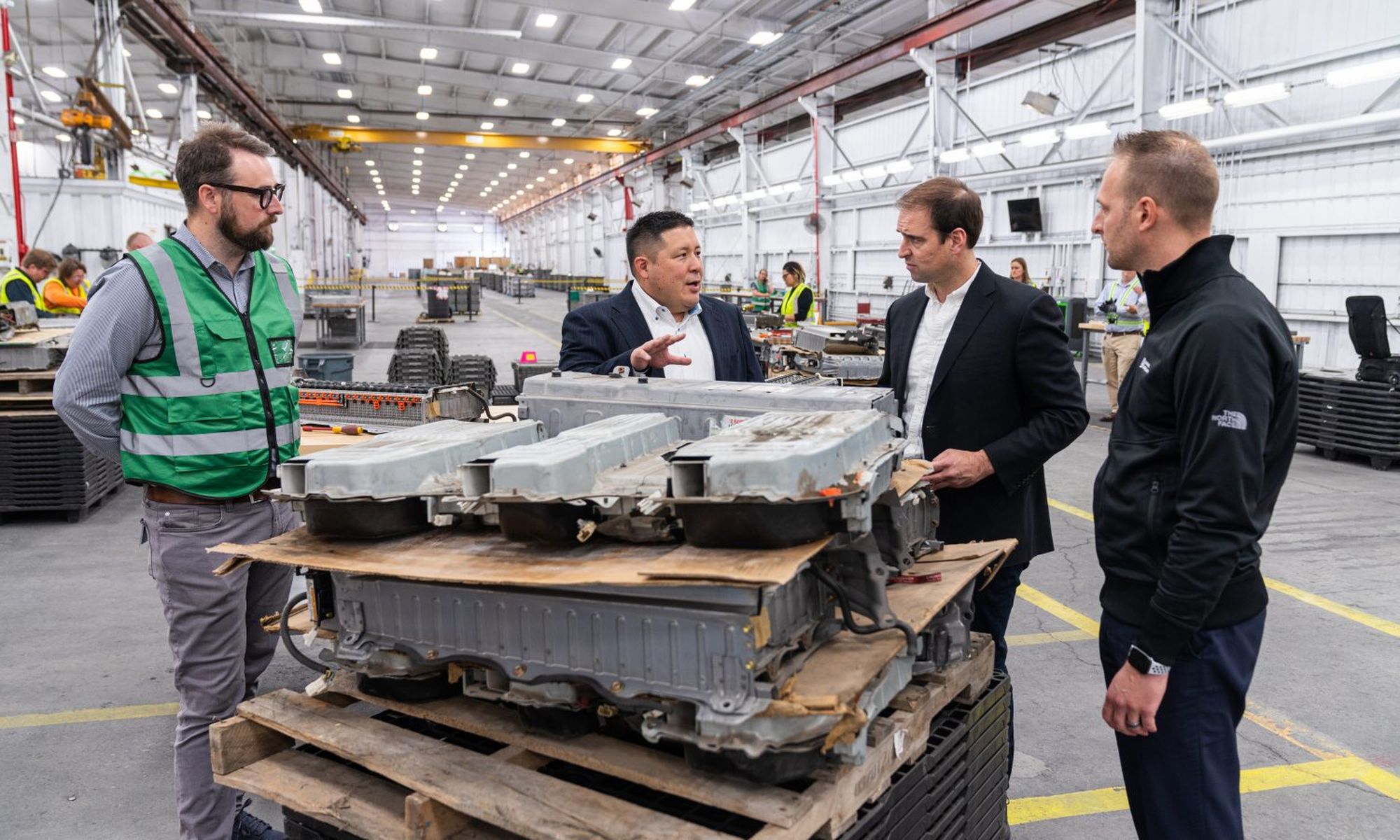
Jun 21, 2022
Redwood Materials and Toyota collaborate on electric vehicle battery collection, remanufacturing, recycling, and battery materials supply
Read post

Redwood’s Consumer Recycling Program was created to make consumer device and rechargeable battery recycling frictionless allowing everyone to responsibly recycle and increase the sustainability of all our products. Only a few weeks ago we announced our education and events work with Rotary Club. Today, we take Redwood's Consumer Recycling Program a step further.
Currently, we have a partnership with Volkswagen Group of America to recycle all end-of-life batteries from Volkswagen and Audi electric vehicles. Today, Audi and Redwood are launching a unique consumer-facing program that gives people convenient access to recycle their old devices and rechargeable batteries at their local Audi dealership.
Redwood recycling bins will be deployed at select Audi dealerships across the country over the coming weeks. Batteries and devices collected in these bins will be returned to Redwood, ultimately helping to build increasingly more sustainable, domestic EV batteries. This will be the first time an automaker has partnered with Redwood to support the collection of household lithium-ion batteries alongside larger EV battery recycling efforts. With global demand for lithium-ion batteries expected to grow by more than 500% in the next decade, every effort to increase materials available for battery production is paramount. It’s a win-win to drive these collection efforts to increase supply and sustainability of EVs.
Batteries are in nearly every consumer device. From cell phones to laptops, e-bikes, e-scooters and electric toothbrushes to vacuum cleaners and power drills, rechargeable lithium-ion batteries have become ubiquitous in our everyday lives. In addition, as more EVs hit our roads (now at 5 percent market penetration in the US and growing rapidly), we’ll need more and more battery materials. All lithium-ion batteries are made up of varying amounts of critical minerals like cobalt, copper, nickel, and lithium - metals that can be recycled almost infinitely. Since metal atoms don’t change or degrade, old devices can become new EVs without any trade-offs to performance or battery life. In fact, a recent test conducted by Argonne National Laboratory, found Redwood’s battery components from recycled content performed just as well as, if not better, than any raw materials on the market. Yet, today, less than 5 percent of lithium-ion battery-containing devices get recycled, mainly because clear recycling pathways don’t exist. Redwood and Audi see a tremendous opportunity to create these pathways, allow consumers to recycle their batteries, and then use these batteries to domestically remanufacture new, sustainable electric vehicle batteries.
The new policies outlined in the Inflation Reduction Act (IRA), create requirements on domestic sourcing and recycling of critical minerals used in EV batteries. End-of-life consumer batteries can help build robust, domestic supply chains and cleaner EVs, supporting the IRA and Administration’s goals of ramping circular, domestic battery manufacturing.
Redwood is grateful to launch this unique partnership with Audi which brings us closer to closing the loop on lithium-ion batteries for electric vehicles and consumer devices. Together, we can decrease our reliance on mining, increase domestic manufacturing, lower the costs of EVs and increase the sustainability of all products.